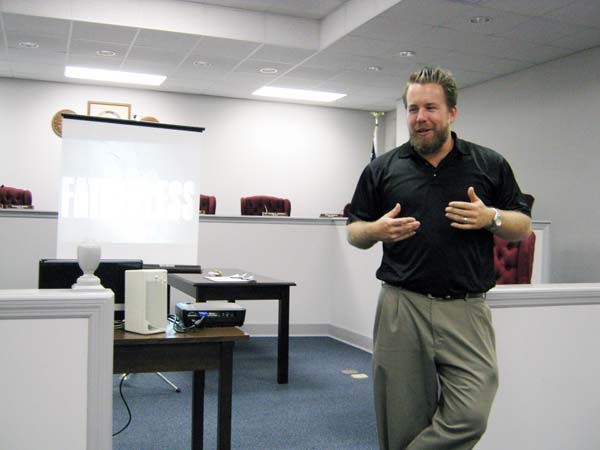Friendship House speaks at Tea Party meeting
Published 8:29 am Tuesday, November 13, 2012

Friendship House of Jesus Administrative Director Josh Paske recently spoke at the Bainbridge Tea Party meeting.
Special to The Post-Searchlight
“In the 1960s, fatherless homes in the United States were limited to only 11 percent of families; however, today that number has increased to more than 42 percent,” said Josh Paske, the director of Friendship House of Jesus, who recently spoke to the Bainbridge Tea Party Group, a group of concerned Decatur County citizens.
His presentation included the history of Friendship House from its founding by Jane Forsyth, through years of growth and development, to its becoming the mainstay of the community that it is today.
Paske spoke from the heart about the focus and goals of Friendship House and its target audience: children who live in broken or single-parent families usually beset by poverty, many of whom are African-American.
He included statistics about the economic impact of homes with no father in the house. According to National Fatherhood Initiative’s website, fatherless homes equate to a cost of $100 billion per year to the U.S. economy and taxpayers through school dropout, incarceration, and participation in state and federal welfare programs. Further, the three major reasons for fatherless homes, from greatest to least, are out-of-wedlock births, divorce, and incarceration.
A truly heartfelt part of Paske’s presentation included Friendship House’s emphasis on learning about and living close to God and Jesus, and development of a spiritual music program replete with a children’s choir and a recording studio. Additionally, Friendship House is looking into the Go Build Georgia program, whose spokesperson is Mike Rowe of “Dirty Jobs” fame. Go Build Georgia is an initiative of the Governor’s Office of Workforce Development, emphasizing learning much needed trades such as plumbing, electrical work, and construction.
Citizens are encouraged to visit and become involved with Friendship House in areas such as mentoring and homework assistance. Financial donations are always welcomed, since the majority of their operational costs are paid through donations from businesses and individuals.





